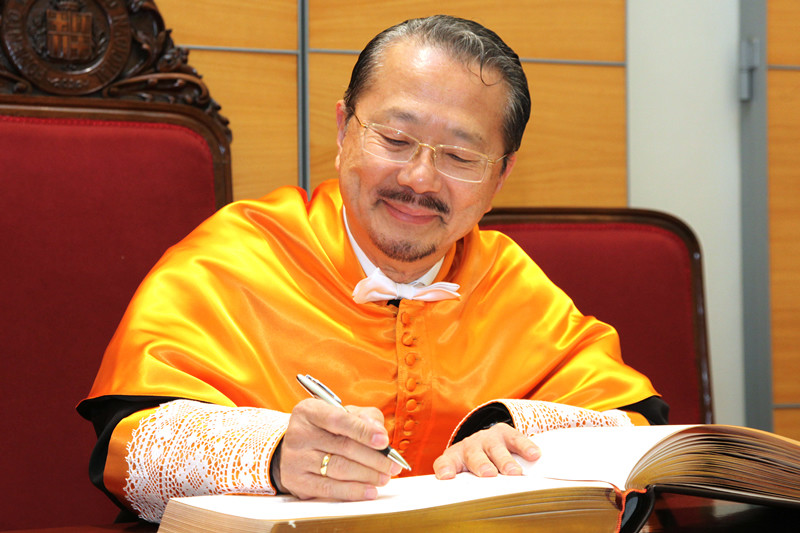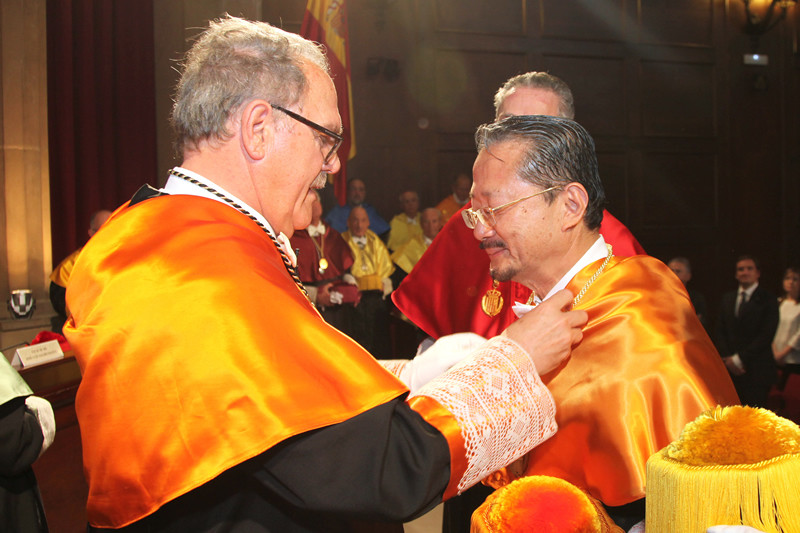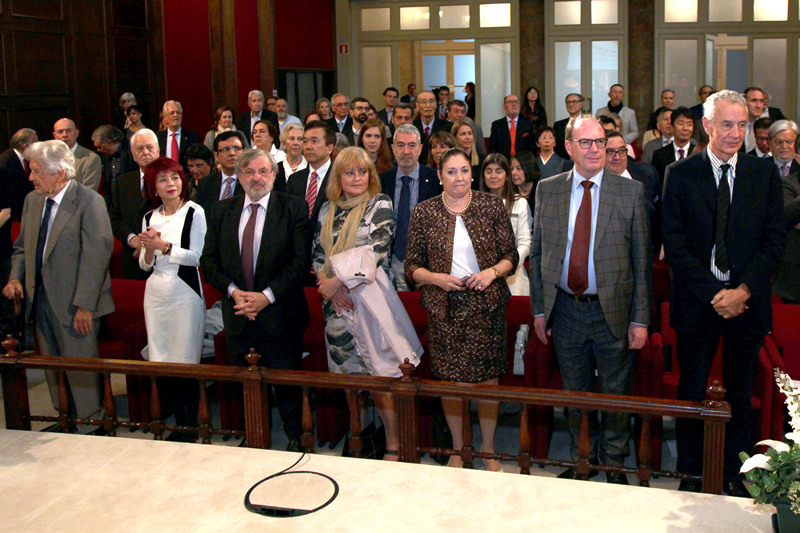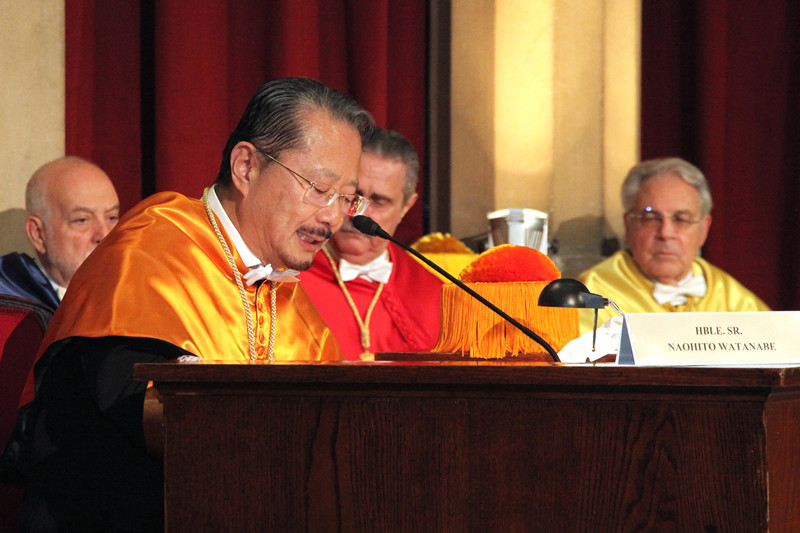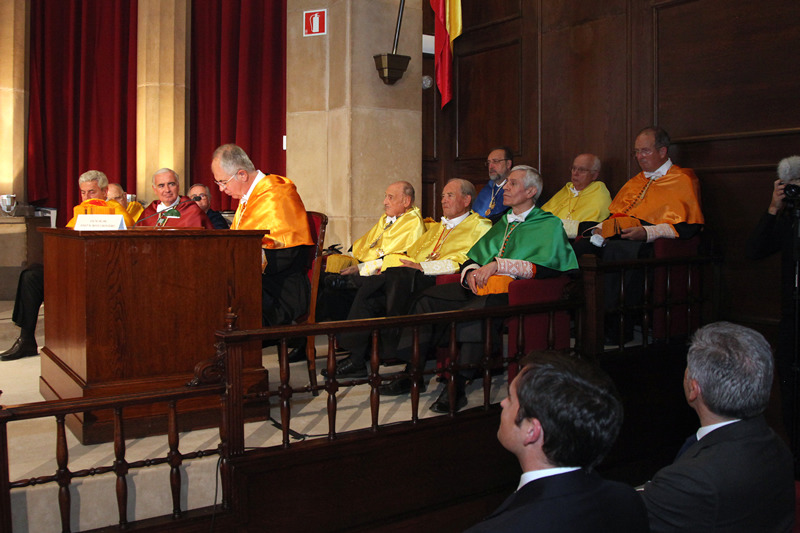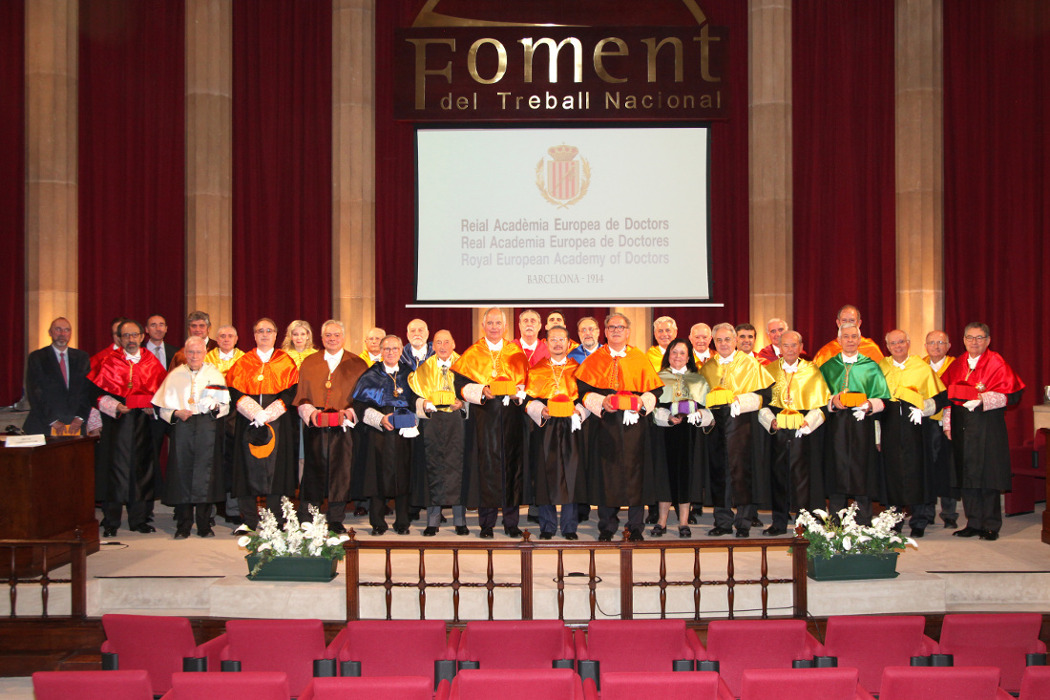Naohito Watanabe, consul of Japan in Barcelona, has been admitted as an honorary academician of the RAED
Naohito Watanabe, consul of Japan in Barcelona, was admitted as an honorary academician of the Royal European Academy of Doctors-Barcelona 1914 (RAED) during a ceremony held on May 15 at the auditorium of the employer association National Work Promotion, in Barcelona. The recipient read the admission speech “Rubén Darío, Japón y japonismo” (Rubén Darío, Japan and Japonism). Josep Maria Bové, a full academician of the RAED and also honorary consul of Austria, responded on behalf of the corporation
The new honorary academician recalled his years in Nicaragua and explained how chance led him to discover the figure and work of Rubén Darío. From there he discovered how one of the leading exponents of modernism in Spanish had felt a special fascination for Japan and also became a driver of what became known as Japonism. “Although the poet was never there in Japan, Darío with his vigorous imagination and cosmopolitan vision merged the exoticism of Japan in its modernism, surpassing time and space”, explained the new academician.
In this context, Watanabe recalled the figure of the Japanese dancer Madame Sadayakko, who surprised the Barcelona society during her trip to the Catalan capital in May 1902. “Ramon Casas and Picasso painted the portraits of Madame Sadayakko that are on display in the Museum of Modernism in Barcelona, Darío admired the scenes of Madame Sadayakko mentioning that the wonderful actress made an exotic and pilgrim revelation”, says the Japanese consul in his speech.
Watanabe could not but state the references to Japan that Darío makes in his “Prosas Profanas”. He highlighted the poem “Divagación”:
Ámame, japonesa, japonesa
antigua, que no sepa de naciones
occidentales; tal una princesa
con las pupilas llenas de visiones
que aun ignorase en la sagrada Kioto,
en su labrado camerín de plata,
ornado al par de crisantemo y loto
la civilización de Yamagata
Love me, Japanese, Japanese
old, that does not know of nations
Western such a princess
with pupils full of visions
that still ignored in the sacred Kyoto,
in its carved silver camerin,
Ornate to the pair of chrysanthemum and lotus
the civilization of Yamagata
Also, in the poem “Para la misma”, a curious allusion to the beauty of a fascinating “Cuban-Japanese” appears:
Miré al sentarme a la mesa,
bañado en la luz del día,
el retrato de María,
la cubana japonesa.
El aire acaricia y besa,
como un amante lo haría,
la orgullosa bizarría
de la cabellera espesa.
Diera un tesoro el mikado
por sentirse acariciado
por princesa tan gentil
digna de que un gran pintor
la pinte junto a una flor
en un vaso de marfil
I looked at sitting at the table,
bathed in the light of day,
the portrait of Mary,
the Japanese Cuban
The air caresses and kisses,
as a lover I would,
the proud bizarre
of thick hair.
Give the mikado a treasure
for feeling caressed
for princess so gentle
worthy of a great painter
I painted it next to a flower
in an ivory glass


